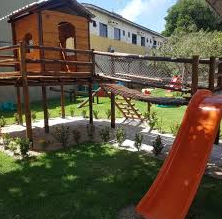Abdus Sattar has been charged for facilitating a religious event in Singapore where a Bangladeshi preacher with ties to a terrorist group addressed migrant workers.
A Singaporean man has been charged for organising a religious gathering at a foreign workers’ dormitory, which featured a Bangladeshi preacher with reported connections to a pro-Al-Qaeda group. Abdus Sattar, 51, faces multiple charges including abetting a foreigner to preach without a work pass, organising an unapproved public assembly, and providing public entertainment without a licence. The event took place at Lantana Lodge in Tech Park Crescent on August 9, 2024.
At the time, Sattar was a director at SBM Electrical & Automation, the company operating the dormitory. The authorities revealed that Sattar invited preacher Amir Hamza, who allegedly has ties to the Bangladesh-based terrorist group Ansar al-Islam, to deliver a sermon to migrant workers. A second individual, Ullah Mohammed Neamat, was also reportedly involved, performing songs at the event.
The gathering, which attracted a significant number of non-residents of the dormitory, occurred without proper records of entry and exit being maintained by SBM. The event was reported to the police on August 12, 2024, and investigations revealed that Amir’s sermon included extremist views, including claims that non-Muslims were infidels and references to violent figures as religious models.
Amir, who was arrested in Bangladesh in 2021 for terrorist-related activities, had used a false passport to enter Singapore for the event. He left the country the day after, and while authorities were aware of his background, his biometric data was not flagged in Singapore’s security databases due to this being his first visit. His views, which included criticism of Bangladesh’s former government, added a political dimension to his extremist rhetoric.
Sattar, along with SBM Electrical & Automation, is set to face court proceedings on April 24. This event comes amid rising concerns over the presence of extremist ideologies within migrant communities in Singapore.








